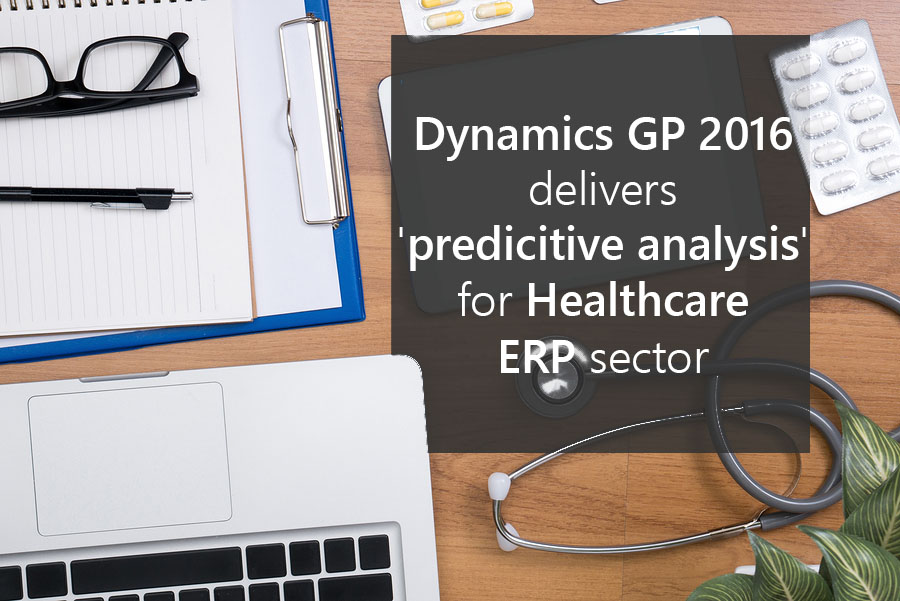
The Healthcare ERP sector seems to value predictive analysis—80% in a Health Catalyst survey—but only 31% have implemented strategies to deliver such forward-looking data analysis for their organizations.
Unlike larger enterprise-type ERP systems, Microsoft Dynamics GP 2016 can provide such data analysis without the need of conquering a huge “learning curve,” or making costly investments in new software, training and implementation.
That was the old model, notes Forrester, before the introduction of more “user-friendly, self-service, BI-integrated predictive analytic tools.” What’s more, and with the movement toward using SaaS in cloud-hosting environments, like Microsoft Azure, ERP systems are more agile, less labor intensive while delivering “subject focused data sets.”
“In healthcare, predictive analysis can be used to diagnose and determine best treatments, as well as to determine which patients are at risk of developing certain conditions, such as diabetes, asthma, or heart disease.”
Furthermore, and with the recent launch of Microsoft’s Dynamics 365, healthcare erp entities, from hospitals and clinics to nursing home facilities, can deploy an ERP and CRM platform without the need for two, separate software purchases. Consequently, business processes, along with patient engagement and tracking, can flow more seamlessly. In the latter instance, optimal healthcare followups has met obstacles with the “limitations in connectivity and the ability to share information securely between providers.” Looking for the right ERP vendors is critical, partnering with a MS Gold Parnter is preferable.
As a certified, Microsoft Gold partner, we can offer our clients special guidance in evaluating and purchasing Dynamics 365, including any of the Dynamics ERP software product line. Contact us today for a free demo, and information Azure cloud and Dynamics GP cloud deployment options.
{{cta(‘f8946c79-8bab-44fd-9cd0-e0100203a233’)}}





